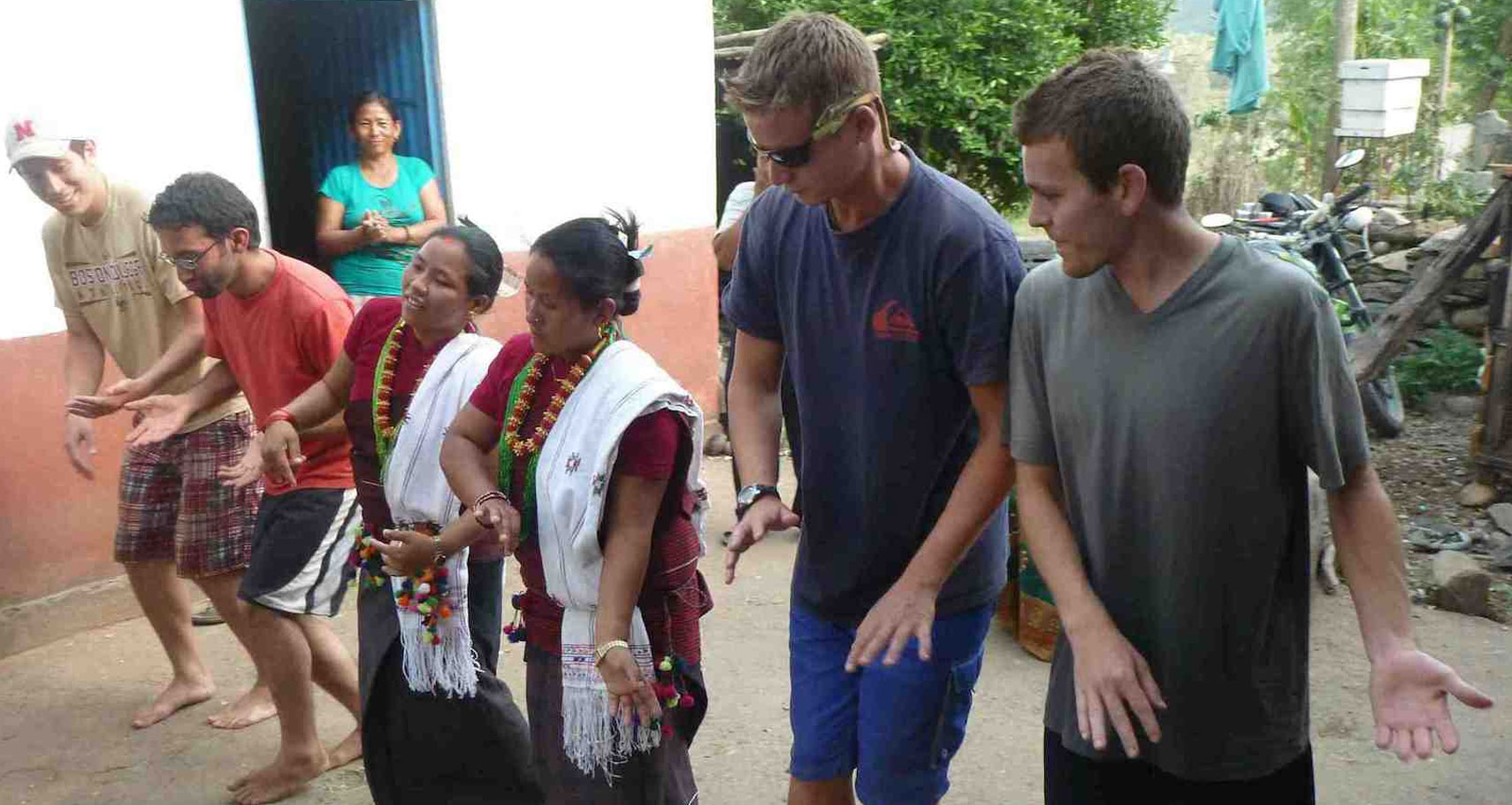In the beginning was an itch to move, to change you and your location. The Lonely Planet told you that the hardest decision is to decide whether to go or not. You are young and from the urban middle-class. You want to help but you are not sure who to help. You tell social media that you are a nomad. Nepal is exotic, peripheral, scenic and far away enough from regions of parental worry or terror. You think good intentions lead to good results. You later say that Nepal chose you.
Your first time. You stay in Thamel, you go outside the Valley, you work on a project and you are rewarded with a trek. You maintain a smile in public ceremonies and during eating habits that make you squeamish. You take your shoes off and remember to add –ji, all while explaining that you are not really rich in your country. You experience some development dilemmas and talk a lot about your bowels. You think being in a place teaches you more than reading about a place. You don’t care or don’t know about the well-worn clichés of foreigners abroad. You nod politely when told that Nepal is small and backward. You think things would change if only attitudes changed. Time passes too fast. You leave in a tearful ceremony involving red powder, garlands and plastic garden chairs. It isn’t hard to romanticise the village.
In your twenties you come back for work, academic or spiritual growth. You volunteer, work on a project or join an INGO. Or you become an expert on a social ill in six weeks, with a thesis or scholarship in mind. Or else you come for meditation, yoga, and stupa-hopping. In all avatars you try to meet the real Nepal, through language study, friendships or even marriage. Your first stay, you say, was incredibly naïve, you were such a fool. You think small is beautiful, Ancient Futures is the future and you mock the poor Humanitarians of Tinder.
A decade later and Nepal is a yearly newsfeed of tikas and your likes, a series of enlarged dinner table anecdotes, and three lines in your resume. You plan to return one day but you hear that it’s important to broaden your experiences beyond one foreign country and you need a proper job. You visit your local Nepali restaurant and sometimes try to make momos. You can just about remember the annoying shop music in Thamel and you hope to take your family back soon. You don’t remember who is who among the Nepali names on your friend request list. You have thought about sponsoring a Nepali child.
Or you did return and Nepal is a job or, more likely, a vocation. You work and live in Sanepa or Lazimpat or Maharajganj if you are a manager. Everything you do, even when you do nothing, is special because it takes place in Nepal. You say Nepal is your second home. You pity your home nation for its anxiety and confusion, induced, you think, by having too much choice. The stability of your Nepali co-workers’ personal lives contrasts with your own mess. When something goes wrong you usually blame a lack of capacity, the UN or partner organisations. You avoid going home but you don’t avoid your own kind, Nepali or Western, inside Nepal. You give strong suggestions to people back home that Kathmandu is a hardship posting.
If you haven’t got a gig you try to get one. Your life contains sometimes tragic and sometimes endearing efforts to recreate the on-arrival excitement of your first visit. In order to stay in Nepal, you learn development-speak and accept less interesting work. You believe in serendipity as well as in changing the system from within. You visit Thamel for ironic purposes. You think your relationship to Nepal is unique. You handle the stresses of living in Nepal by living as though you are not in Nepal. You never get tired of people praising your spoken Nepali, even as it falters. You do get tired of all the questions about marriage. Your real gig is being in Nepal.















